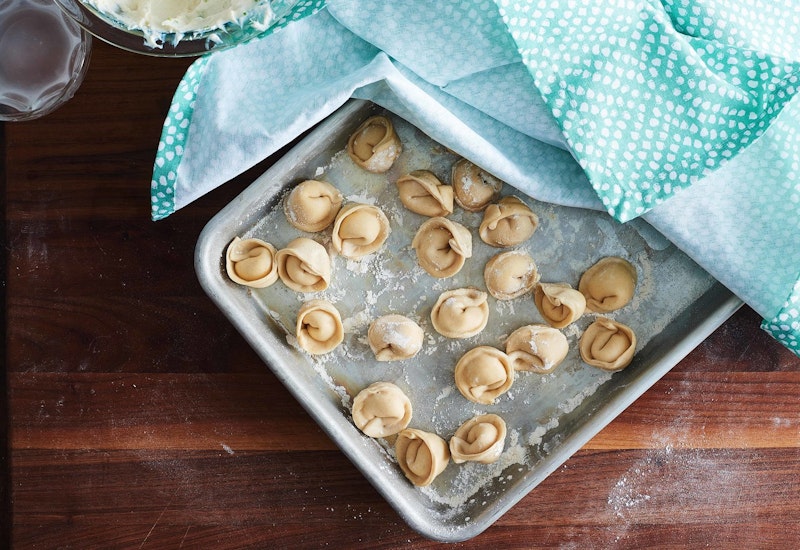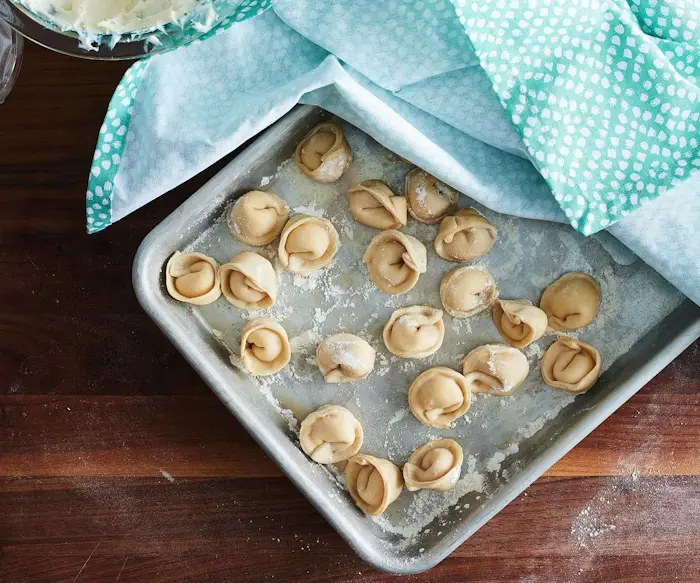“My own family’s story—and the restaurant itself—owes its very existence to a singular moment seventy-five years ago,” chef Bonnie Frumkin Morales explains in the introduction to her cookbook Kachka, which bears the same name as her downtown Portland restaurant.
That defining moment came in late 1941, when the Jews of a small town called Bobr in Belarus were rounded up and forced to dig a large ditch. Knowing what would follow, her grandmother Rakhil Altshuler said goodbye to her family, carried her baby, and disappeared under the ghetto’s barbed wire. She walked for two months through villages and forests, where her child perished. When she needed to, she peddled a story, telling people that she was a Ukrainian woman on her way to see her husband’s family. The story carried her.
Doubting her Ukrainian roots, a Nazi town warden who stopped Rakhil, asked her how to say the word “duck” in Ukrainian. She didn’t speak the language, and instead answered with the Belarusian and Yiddish word for the animal: kachka. “And with this one little word, this little duck, the key slid on the lock and the gates fell open,” she writes.
Bonnie never met that grandmother, her father’s mother, but the story shaped her family and her warm and inviting restaurant that’s become a destination for those longing for a taste of Russia. Her takes on dishes like herring under a fur coat, or herring stacked in a neat tower with beets, potatoes, hard boiled egg, and sweet onion, and short rib borsch, which comes with the description: “psst. this is nothing like the stuff in the jar at the store,” are prepared with a level of care and skill that’s not always found in Russian restaurants in the U.S.
While the name of the restaurant comes from her father’s side of the family, it is a recipe from her mother that is best associated with it. Each day, Kachka sells approximately 2,000 dumplings, a mix of meat-stuffed pelmeni and cheese or cherry filled vareniki.
Bonnie was raised on the dumplings: “We always had some in the freezer in my parent’s house,” in Chicago, she explains. “But I never in my life saw anybody make them. They’re so common in Russian grocery stores — no one thinks to make them.”
As a young chef, she and her husband Israel would come home late, hungry after dinner service. Bonnie would make a bowl of the frozen dumplings, doctoring them with what was in the house. The two “fell in love over bowls of pelmeni,” she writes in the book.
Bonnie started to experiment with making the dumplings, playing with a recipe for dough from her mother’s recipe card box and her mother’s pelmenitsa, a Russian dumpling mold that makes 37 dumplings at a time. “Even though my mom never made pelmeni at home, she still immigrated with a pelmenitsa,” Bonnie explains. She carried it with her when she left the Soviet Union, through Poland, then Vienna and Rome, and ultimately to Chicago. Coming to America with a pelmenitsa “wasn’t uncommon for the time. It was an essential part of the kitchen,” Bonnie adds.
Today, she has several at the restaurant and her team rolls out dough for six pelmenitsas at a time, producing 222 vareniki with farmers’ cheese or cherries, or meat-stuffed pelmeni, in one go. Her mother’s pelmenitsa makes it into the rotation some of the time, but it’s dulled a little bit with age. “I know it’s not efficient,” she says, but “it still makes dumplings and it’s never gonna stop.”

